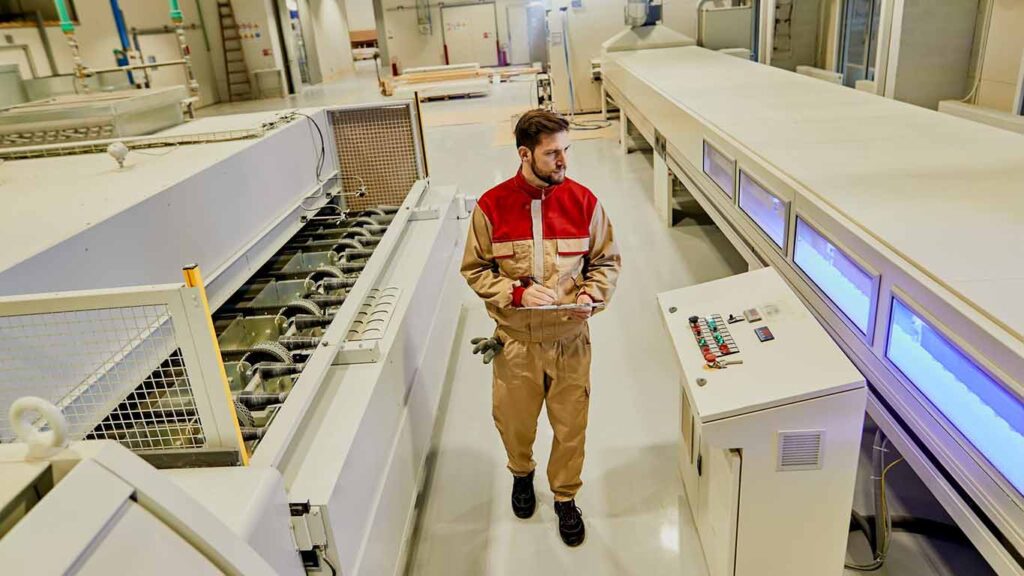How Efficient Industrial Water Chiller Have Become Solutions? Conventional cooling techniques are usually unsuccessful because they consume a lot of energy and waste water.
Hybrid cooling systems provide the solution to these challenges via a clever combination of air and water cooling. They provide enhanced efficiencies, reduced costs, and greater sustainability. With all the industries clamoring for greener solutions, hybrid cooling is simply the best one.
These are resource-conserving but performance-balanced systems. And that is why hybrid industrial water cooling systems are popular with businesses today. In this article, we will analyze the top reasons for their increasing popularity.
Reduced Energy Consumption
Hybrid cooling systems remove heat with a combination of air and water. That two-tiered approach reduces electricity usage. Conventional cooling techniques, such as air-cooled or water-cooled machines, consume significant energy.
But hybrid systems alternate cooling modes, contingent on demand. When it’s mild though, they turn to air cooling more. They use water to boost efficiency during peak heat. This allows flexibility and reduces energy consumption.
And with less energy use, you get lower electricity bills. Hybrid cooling helps many industries, including data centers and certain industries. Similarly, energy efficiency reduces carbon emissions. That back global efforts at industrial pollution reduction.
Now, companies are more focused on energy-saving strategies. There are also government incentives for businesses that implement energy-efficient systems. That is why hybrid cooling present a natural option industries.
Water Conservation Benefits
Water scarcity is an emerging issue on a global scale. Water-cooled systems are essential for many industries. These systems require significant amounts of water for cooling systems. Hybrid cooling reduces this demand.
When feasible, it employs air cooling, thus reducing water use. Other systems recycle water, which further reduces waste. This aspect enhances their sustainability. The biggest beneficiaries are industries with constrained access to water.
Cooling towers, traditional ones, evaporate crazy amounts of water. Hybrid systems are put in place to reduce water loss. That also makes them good for drought-stricken regions.
Companies that use less water also spend less on costs. For one, hybrid cooling decreases water bills and treatment costs. Industrial water use is now regulated by many governments.
Enhanced Cooling Performance
Hybrid cooling systems have improved temperature control. They do this in response to varying conditions, both in weather and industry. Extreme heat challenges conventional cooling systems.
How does hybrid cooling cope with higher temps? It toggles between air and water cooling as required. That provides a stable cooling effect. Sectors such as power plants and manufacturers need constant cooling.
Equipment overheating leads to damaging and downtime. Hybrid cooling avoids such issues. It also increases system lifespan. Minimizing beat helps lengthen the life of equipment.
Just that leads to less repairs and fewer replacements. Reliability is valuable in many industries. Unexpected failures mean lost revenue and production postponements. Hybrid cooling mitigates those risks.
Lower Operational Costs
Industries always seek to maximize return on investment. Cooling is a good part of our operational expenses. Conventional cooling systems usually translate to high power and water bills.
Hybrid industrial cooling system reduces both. It gives energy usage a boost, which reduces the cost of electricity. Water conservation also provides a financial reward. Water treatment costs billions across industries.
Hybrid cooling reduces those costs. “You also have the lower maintenance expenses. Such systems have less wear and tear. Which means less repair work and fewer parts replaced?
On the other hand, hybrid cooling is distressingly common in industries striving for sustainability. Tax incentives often accompany green initiatives. Businesses that implement green technology are rewarded by governments.
Environmental Sustainability
Sectors need to be less harmful to the environment. Many air-conditioning systems are energy- and water-hungry. They also emit toxic pollutants. Hybrid cooling systems address these problems.
Using less electricity reduces carbon footprints. Conserve soil and water-consuming natural resources. Some systems even employ environmentally friendly refrigerants. That also reduces environmental destruction.
Regulatory agencies now impose tighter pollution laws. Fines could be imposed on companies relying on conventional cooling. Hybrid cooling enables compliance with regulatory standards.
Consumers are also favoring environmentally responsible companies. Brand reputation improves with green technology. Sustainability programs are now common in many industries. These initiatives are supported by hybrid cooling.
Conclusion
Hybrid cooling systems have some clear benefits. They save energy, save water, and save money. Their better cooling performance make sure their reliability. Sustainable and compliant practices also help businesses.
Cities are leading the transition to greener ways of working, making hybrid cooling the clear choice as industries switch gears. Companies that implement these systems find that both their financial and environmental bottom lines benefit from doing so.
The need for efficient cooling will only increase. Hybrid systems will be critical in influencing future industrial cooling. Selecting them is not merely a trend — it is a wise, sustainable choice.

